Read what our students, faculty, and alumni have to say about why they chose the UC Davis Graduate Group in Nutritional Biology.
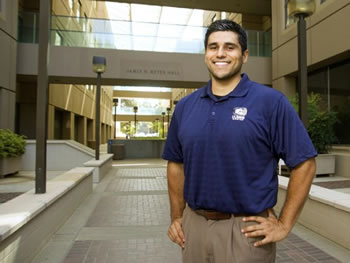 Albert Aguilera, Ph.D., M.P.H.
Albert Aguilera, Ph.D., M.P.H.
Alumni, Class of 2015
Major Professor: Lucia Kaiser, Ph.D.
After receiving his Master of Public Health from UC Davis, Aguilera decided to pursue a Ph.D. in nutritional biology, again choosing UC Davis for two reasons: the university’s reputation as one of the premier nutrition programs in the world, and its location within close proximity of many of California’s underserved, rural communities.
Aguilera feels the Nutritional Biology graduate group in particular augmented his success. For the Niños Sanos study, he works with a team of students and faculty from the School of Medicine, School of Nursing, Economics Department, School of Education and Chicana/o Studies Department. “This collaboration highlights one of many great aspects of a UC Davis graduate education,” he says. “Working across disciplines has exposed me to different approaches to the problems that we face in the field of nutrition today, preparing me to take on the problems of tomorrow.”
As a part of the program’s International and Community Nutrition designated emphasis, Aguilera interacts with graduate students from countries such as Mexico, Chile, Ghana and India, giving him a global perspective of nutrition.
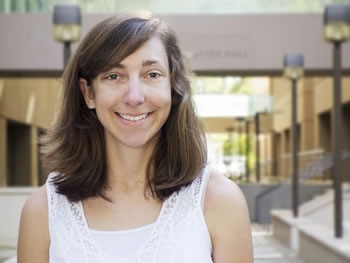 Alice Martinic
Alice Martinic
Ph.D. Student, Graduate Group in Nutritional Biology
Major Professor: Carolyn Slupsky, Ph.D.
"I got my Bachelor of Science in Chemistry from the University of New Mexico, and came to UC Davis to apply my chemistry knowledge to one of my favorite topics- food," says Martinic. "The interdisciplinary nature of this program allows me to explore metabolism, food science, and microbiology all in one place, through Nuclear Magnetic Resonance (NMR) metabolomics. After graduating, I plan to pursue a career in industry, helping people to eat optimally based on their genetics and microbiome."
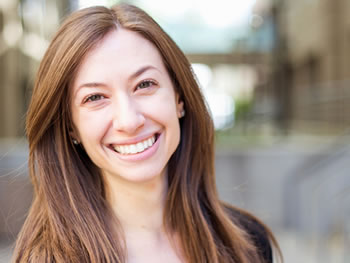 Debbie Fetter
Debbie Fetter
Ph.D. Student, Graduate Group in Nutritional Biology
Major Professor: Sheri Zidenberg-Cherr, Ph.D.
Debbie Fetter completed her undergraduate degree in Nutrition Science at UC Davis and started out as an intern for Dr. Zidenberg-Cherr’s research group. Through that internship, she saw the interesting research being done and knew she just had to get involved.
"I joined the Graduate Group in Nutritional Biology (GGNB) because I wanted to continue to pursue my interest in nutrition through researching nutrition education. I like that the GGNB is a cooperative interdepartmental organization, which allows for the opportunity to learn from different areas of expertise," says Fetter, "I like that everyone is supportive and open to unique research collaborations. The enthusiasm for nutrition is evident and creates a great environment."
On joining the laboratory of Dr. Sheri Zidenberg-Cherr, Fetter noted "I admire the passion my lab group has for nutrition education. We really are a lab “family.” Teamwork is key and everyone is always willing to help out and collaborate."
After receiving her degree Fetter hopes to use her her love for writing and scientific background to develop nutrition education materials to teach people, particularly children, about nutrition and help them live a healthy lifestyle.
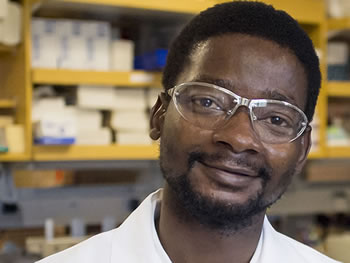 Andew Matchado
Andew Matchado
Ph.D. Student, Graduate Group in Nutritional Biology
Major Professor: Christine Stewart, Ph.D.
"I come from a country where malnutrition rates are alarmingly high, " says Matchado, "I have worked in a hospital ward looking after malnourished kids and so I have seen the health consequences of malnutrition. Additionally individuals have failed to realize their potentials be it economically because of the effects of malnutrition. These facts propelled me into singling out nutrition as my number one health priority.Despite my training as a medical doctor, my knowledge in nutrition is limited.To effectively contribute to the fight against malnutrition in my home country as well as other middle and low income settings I need to be equipped with essential knowledge and skills in nutrition. Hence my choice to study Nutritional Biology."
"What I like most about the program is the course structure. The program offers a wide range of courses most of which are in line with my goals for instance international nutrition, nutrition and chronic disease, community nutrition to mention but a few. Furthermore there is enough expertise within the program to deliver/handle the courses. Another fact is that the program is under UC Davis, number one Agriculture university in the world. We cannot talk about nutrition without talking about Agriculture and when nutrition is discussed amongst experts in Agriculture, you expect the best."
"I also value the link that GGNB has to the Program in International and Community Nutrition (PICN) as this forms the platform to understanding nutrition from the low income setting perspective. The diverse student culture enriches the interaction students and faculty have in this program."
"After graduation I intend to join University of Malawi, College of Medicine faculty of public health and family medicine so that I can teach medical undergraduate students nutrition courses. I also plan to design and conduct relevant nutrition research with emphasis on the interplay between nutrition and chronic disease. Additionally I would like to form an awareness club to sensitize the population on the interplay between nutrition and chronic disease."
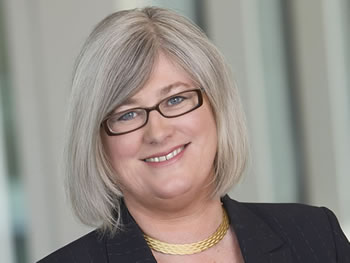 Heather Young
Heather Young
Ph.D., R.N., F.A.A.N.
Associate Vice Chancellor for Nursing
Dean, Betty Irene Moore School of Nursing
GGNB Faculty member
"The GGNB program addresses issues that are very important for health, from an interdisciplinary perspective, and from the molecular to the global levels," says Young.
"I was an undergraduate in the Department of Nutrition. I am very interested in nutrition and health and welcomed the chance to collaborate with so many faculty I respect and meet students who are excited about improving health through nutrition. My experience as a research assistant when I was an undergraduate inspired me to pursue research as a career, because I learned about working as a team and was inspired by the graduate students, post-docs and faculty who were part of the lab. It is exciting to be part of this tradition in the Department of Nutrition once again."
Regarding the students in the program, Young notes, "they are excellent students who are dedicated to the field of nutrition and who express their commitment in many ways, through research, education, and engagement in the community. I am very impressed with the creativity, knowledge, persistence, and outstanding interpersonal skills of the graduate students in GGNB."
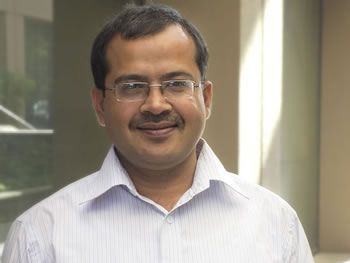 Md Barkat Ullah
Md Barkat Ullah
Ph.D. Student, Graduate Group in Nutritional Biology
Major Professor: Kathryn G. Dewey, Ph.D.
"Under-nutrition is a major public health problem in my country, Bangladesh," says Ullah. "Almost half of preschool children and one third of pregnant mothers suffer from under-nutrition, as well as nutritional deficiencies. Since 1998, I have been working in the field of maternal and child health and nutrition after I completed my MBBS (Bachelor in Medicine and Bachelor in Surgery) and saw the nutritional deficiencies, under-nutrition, and their consequences on mothers and children of my country, particularly in rural areas. My firsthand experiences motivated me to study nutrition so that I can help the people of my country achieve good nutrition. In December 2012, I began working in a research project jointly implemented by UC Davis and ICDDR'B. During my work with this project, I had an opportunity to know more about the Nutritional Biology graduate program at UC Davis, interacting with Professor Kathryn Dewey, learning about her work with GGNB, many other research projects of others renowned scientists of this department in Bangladesh and other so-called "developing countries." These research projects motivated me to apply to study nutrition at UC Davis at the doctoral level."
Regarding the GGNB program, Ullah reports that he admires the professors, their courses, course contents, teaching methods, and indispensable seminars.
After graduation Ullah would like to continue working in research projects by writing research proposals and designing and implementing research projects to improve the nutritional status of mothers and children in Bangladesh while collaborating with UC Davis and the ICDDR'B. He would also like to work on prevention of obesity and chronic diseases as recently these two problems are increasing rapidly in his country.
 Lori Nguyen
Lori Nguyen
Ph.D. Student, Graduate Group in Nutritional Biology
Major Professor: Sheri Zidenberg-Cherr, Ph.D.
"Nutrition combines two of my favorite topics, biology and food," says GGNB student Lori Nguyen. As an undergraduate Molecular Biology major at UC San Diego, studying intricate biological processes was an interest of Nguyen's, but it seemed to be lacking a human connection. After taking a Nutritional Biochemistry course, she was inspired to learn more about how our body processes and responds to nutrients. Eventually, that interest led her to pursue her PhD at UC Davis. "By combining these two topics, nutrition allows me to study biology as it relates to human health and gives me an opportunity to engage with people, since everyone eats and has something to say about it," says Nguyen.
"I like that the program is very interdisciplinary and that we have experts from so many different areas of nutritional biology. There are many opportunities for learning something new outside of your area of specialization and potential collaborations with enthusiastic researchers."
After graduation Nguyen hopes to complete a dietetic internship program and earn an RD credential, and then become involved with research aimed towards understanding and improving childhood obesity. Says Nguyen, "I also hope to be in a position to be able to translate scientific knowledge into real life application in order to teach and encourage people to make choices that will lead to longer, healthier lives."
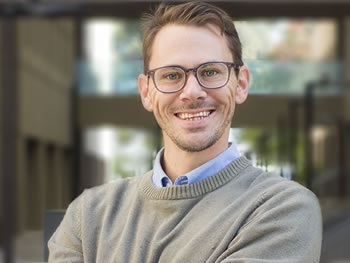 Zachary Pierce
Zachary Pierce
Ph.D. Student, Graduate Group in Nutritional Biology
Major Professor: Charles Stephensen, Ph.D.
"When I left the military, I wanted to go into medicine," says Pierce. "But, while working at a health store, I became keen on the metabolism of vitamins and minerals and how they impact our health and development, and how we even came to know about these compounds. Ultimately, I settled on nutrition because it explores so much of who we are - the metabolism of nutrients and how this affects our development; the psychology of eating and how this influences what and why we eat the things we do; the philosophical component of diet and dietary traditions and how they influence public health policy, for better or for worse. Everything I could want to learn, nutrition offers it."
What Pierce likes most about GGNB is that it's simply so broad in its scope. Pierce notes, "Our program involves collaborations with nearly every other department on campus which allows me to peer into the work of people from different disciplines across science. I'm interested in the relationships between vitamin supplementation and immune responses. More specifically, I'm interested in how vitamin A, and other retinoids, exert an influence on the developing immune system and intestinal microbiota of infants, especially in the context of vaccine responses."
After graduating, he hopes to do post-doctoral work, likely involving the impact of vitamins on immune function and the development of our intestinal microbial composition.
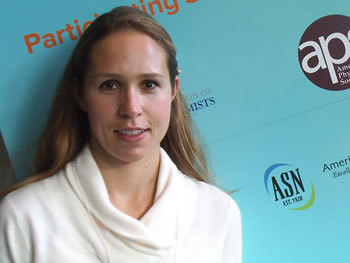 Tara Rogers, M.S., R.D.
Tara Rogers, M.S., R.D.
Ph.D. Student, Graduate Group in Nutritional Biology
Major Professor: Marta Van Loan, Ph.D.
Tara Rogers worked as a clinical dietitian before coming to Davis where she joined Dr. Van Loan's lab. "Many of my patients and both of my grandmothers had osteoporosis," says Rogers, "so studying how to attenuate risk for this disease through nutrition has personal and professional significance for me." After graduating Rogers hopes to find a job in which she can combine clinical work with research.
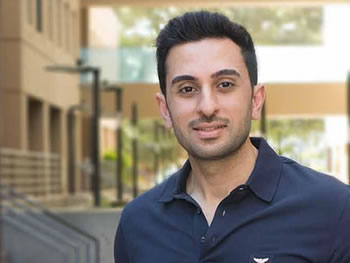 Yousef Aldashti
Yousef Aldashti
Ph.D. Student, Graduate Group in Nutritional Biology
Major Professor: Robert Hackman, Ph.D.
“I have always been extremely passionate about health and fitness, and ever since entering the field of nutrition, my interest in this expanding field has continued to grow. Before entering the UC Davis graduate group I received my B.S. in Nutrition & Dietetics and started my career as a clinical nutritionist. I then went on to complete my M.S. in the same field and subsequently joined the faculty in the department of Nutrition at PAAET in Kuwait. After several years as an instructor, I realized that to expand my horizons and develop expertise applicable to both industry and academia, I needed to continue my studies. Obtaining a doctoral degree from UC Davis GGNB was the next logical step on my career path.”
Regarding why he chose GGNB Yousef says that “a strong element of the program is the availability of experts from many different specialization areas of nutrition and their collaboration with other lab groups and students, which allows us to broaden our knowledge. Another highlight is the weekly seminar series presented by guest professionals, covering recent nutrition-related topics and research findings.”
Yousef’s research interests include the fields of study that deal with Molecular and Clinical nutrition, as applied to chronic diseases. Currently, as a doctoral student, he is interested in dietary factors that influence the risk for vascular disease. His research area focuses on examining the effects of certain phytochemicals (flavonoids) on specific targets to demonstrate their role in vascular function and health promotion.
“As an educator, a sponsored faculty member, my goals after graduation are to continue teaching and conducting research on the influence of diet on the risk for chronic diseases including the effects of phytochemicals on vascular health.”
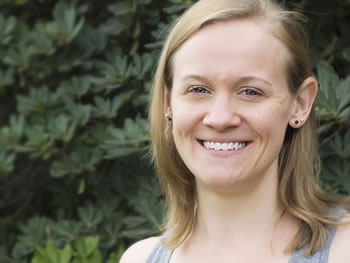 Shannon McClorry
Shannon McClorry
Ph.D. Student, Graduate Group in Nutritional Biology
Major Professor: Carolyn Slupsky, Ph.D.
Shannon McClorry came to nutrition in a very round-about way. "Nutrition has always been something that I read about in my spare time as a hobby," says McClorry, who initially wanted to do completely different research using NMR. In the process of trying to find a professor that was interested in her ideas, she found Dr. Carolyn Slupsky and became fascinated by her work with infant development and metabolomics.
McClorry notes that one of her favorite components of the GGNB program is the willingness for everyone to work together. "Many cohorts have studied together for classes or exams, and the upper-year students never fail to help those cohorts that come after them", says McClorry, "I cannot thank the upper year students enough for the help and guidance that they have provided. The same can be said for all of the faculty that I have encountered."
McClorry grew up in a small town that is much like Davis, but with snow, and she enjoys the slightly more laid-back feel provided in this community. "From biking everywhere, to the Farmers’ Market, to the many patios, I never find myself bored in this town," says McClorry, "I love the fact that I can drive a couple of hours from Davis and find fantastic hiking, skiing, surfing, and general entertainment."
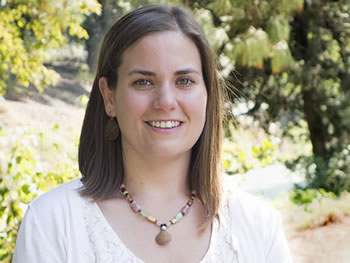 Jennifer Taylor
Jennifer Taylor
Ph.D. Student, Graduate Group in Nutritional Biology
Major Professor: Sheri Zidenberg-Cherr, Ph.D.
Jennifer Taylor decided to attend UC Davis because she wanted to work with researchers well-versed in community and school-based nutrition programming, while also developing an integrative understanding of nutrition science. Before starting the PhD program at UC Davis, she completed her master's in the Department of Nutrition and Food Science at the University of Vermont. Her master's thesis focused on evaluating dietary assessment methods used to estimate children's food intake in the school environment. Interested in continuing with research in school nutrition programming, projects in Dr. Sheri Zidenberg-Cherr's lab, including ongoing evaluation of a school-based intervention called the Shaping Healthy Choices Program, made the GGNB a very natural fit.
Her doctoral research focuses on understanding social and environmental factors that shape children's food choices at school. This includes the development and application of objective dietary assessment methods for measuring children's food intake. Most recently, this has included collaborations with researchers in Human Development to understand the roles of children's parents and peers on food availability and intake during school.
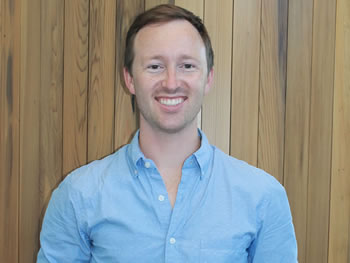 David Dallas, Ph.D.
David Dallas, Ph.D.
Alumni, Class of 2012
Dr. Dallas received his Ph.D. in Nutritional Biology with a Designated Emphasis in Biotechnology and Area of Specialization in Analytical Chemistry from UC Davis in 2012.
"The GGNB program allowed me to expand from a Public Health nutrition perspective to a molecular, biochemistry perspective of Nutrition, says Dallas, "The program has so much breadth and depth and allows enormous freedom to explore your own research ideas. It has been a truly rewarding, incredible experience, and I owe so much to all of the wonderful professors in the GGNB for helping me along the way."
After graduation Dr. Dallas worked as a Postdoctoral Research Fellow in the UC Davis Department of Food Science and Technology. There he worked for Drs. Carlito B. Lebrilla, Daniela Barile, David Mills, and J. Bruce German with funding provided by the USDA National Institute of Food and Agriculture and the NIH K99 Career Award. His research focused on identifying the digestive products of breast milk in term and premature infants in order to determine improved feeding solutions for premature infants. Through examining bioactivity of identified naturally-occurring peptides in milk and using cutting-edge liquid chromatography mass spectrometry and database searching, he identified thousands of novel endogenous milk peptides, many of which have antimicrobial or immunomodulatory actions.
"The many mentors I've had along the way have been tremendous," says Dallas, "Bruce German mentored me in thinking and working independently and building a network of collaborations. Dr. Daniela Barile in Food Science taught me how to mentor and direct graduate and undergraduate students and how to work with companies. Dr. Carlito Lebrilla in Chemistry guided me in developing state-of-the-art analytical chemistry techniques. Dr. Mark Underwood mentored me in clinical study design at the Neonatal Intensive Care Unit. Dr. David Mills enabled my work to expand to examining how milk peptides affect infant gut microbes. Beyond this, so many other professors and researchers have helped me along the way with essential research and professional advice and mentoring, including Dr. Carolyn Slupsky, Dr. Charles Bevins, Dr. Emanual Maverakis, Dr. Jennifer Smilowitz, Dr. Angela Zivkovic, Dr. Danielle Lemay and Dr. Brett Phinney. I'm so very appreciative of all these wonderful colleagues."
Beginning in January 2016, Dr. David Dallas will be an Assistant Professor in the School of Biological and Population Health Sciences within the College of Public Health and Human Sciences at Oregon State University in Corvallis, Oregon. The overall aim of Dr. Dallas’s research at OSU will be to improve the health of premature infants, a population that suffers greatly reduced health outcomes (including early mortality, developmental disorders, and high risk of infection) in comparison with term-delivered, breast milk-fed infants. The reduced digestive capacity of premature infants results in an inability break down milk proteins in the same way as term infants. This diminished digestive function may result in the premature infant's inability to take advantage of bioactive peptides and glycopeptides encrypted in human milk proteins. In essence, premature infants are not receiving the full and multi-faceted health benefits of milk.
